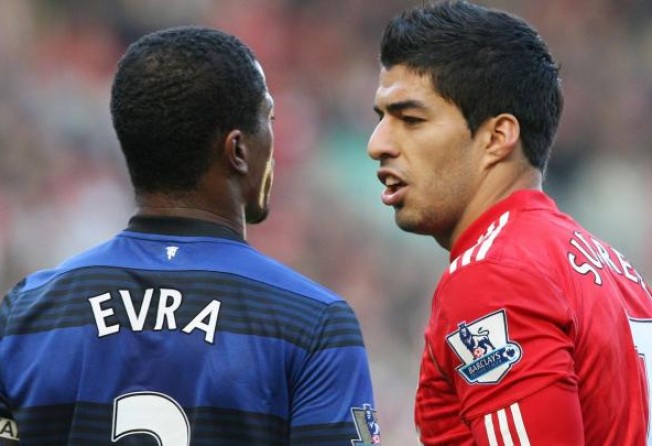Forced handshakes should get brush-off
Unnecessary ritual of 'pressing the flesh' is merely an opportunity for players to indulge in gamesmanship and unsporting behaviour

Handshakes in soccer matches are like milkshakes in fast food chains - sickly sweet, artificial and bad for you. In truth, because ceremonial handshakes are so insincere and ostentatious, they are just another opportunity for players to engage in gamesmanship.
That is exactly what happened between John Terry and Anton Ferdinand last week and will be the centre of attention on Sunday when Patrice Evra and Luis Suarez come face to face again.
Whatever the mitigating circumstances and reasons for their dislike of one another, the circumstance of the forced handshake before the start of a match presents an opportunity for players to be unsporting.
Players are focused on the immediate goal of winning a competitive match. An insincere handshake is a distraction and a nuisance.
This forced pre-match ritual is called the "Fifa handshake". Everyone performs a strangely hypnotic ceremonial dance of circling the match officials, almost like a game of musical chairs, and as they crisscross they shake hands.
Watch carefully and rarely will players look each other in the eyes.
The English Premiership has adopted the Fifa handshake for one reason only - to get matches started on time. It is not to help players show respect to their opponents and match officials, despite what competition organisers claim.
During Euro 2012, referees were under strict orders to start on time because every minute of delay cost £1 million (HKI$12.5 million) in TV revenue.
Starting next season, the English Premiership will net £3 billion for live domestic rights and £1.4 billion for live overseas rights over three years.
Matches have to start on time. The reason matches have a tendency to not kick off on time boils down to gamesmanship and not wanting to be "suckers".
When teams are in their dressing rooms they are primed to get going and "pumped up".
The referee pushes a buzzer that summons the teams to come out and line up together in the tunnel. But teams do not want to be the first ones out because they do not want to be the "suckers" hanging around waiting for their opponents, so both teams delay their exits as long as possible.
Eventually, the match officials resort to banging on dressing room doors. There is always a lot of fidgeting, jiggling and twitching going on.
Players try not to look at their opponents, and if they do, it is usually a sideways glance down at an opponent's legs and boots to assess the potential damage they might inflict on their ankles, heels and knees.
There is never eye-to-eye contact, unless there is genuine hatred or sincere friendship.
The players are about to "do battle" and are not interested in pressing the flesh or engaging in small talk. In some matches, teams may strategically perform a group huddle, which further delays the kick-off.
Should the Fifa handshake be scrapped? Insincerity and gamesmanship are good reasons to stop using pre-match handshakes. Health is another.
During public health crises, such as when swine flu reared its head, handshakes were still prominent in soccer. A referee colleague in Australia caught swine flu a few years ago, probably because of pressing the flesh with too many people in and around the soccer pitch.
Handshakes are simply overused. And like many things the more you use them, the less value they impart. Whistling is a great example from the realm of officiating that highlights this.
In the past during a match, referees would whistle every time the ball went out of play. This decreased the impact of the whistle, particularly when free kicks and penalties had to be awarded. This is the reason why referees are advised not to whistle too much or unnecessarily. The same can be said for the use of handshakes.
If the Fifa handshake is really to help players show respect to others, then perhaps it should be used sparingly to maintain its impact. Also it does not have to be used, and hence abused, before kick-off.
A handshake at the end of the match is all that is required to show respect. Those who can shake hands at the end of a match without criticising are the ones who really show respect.